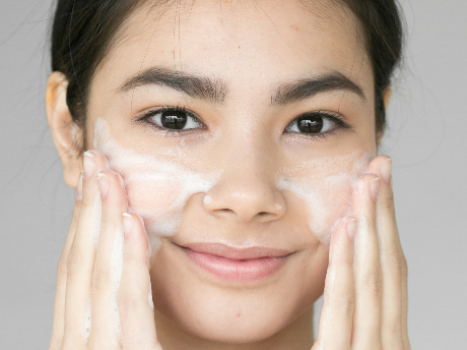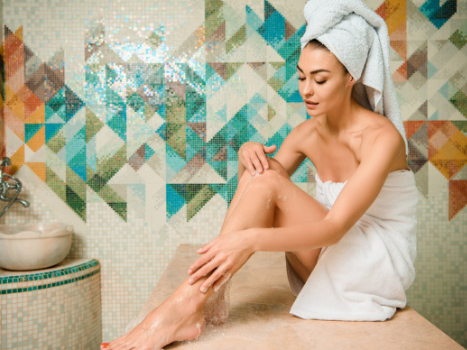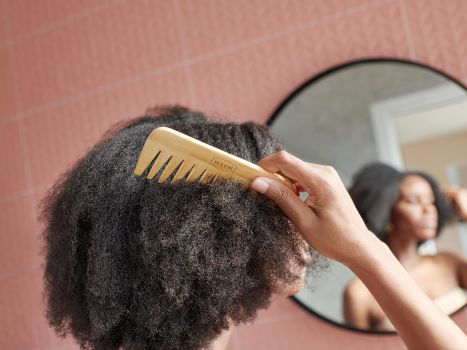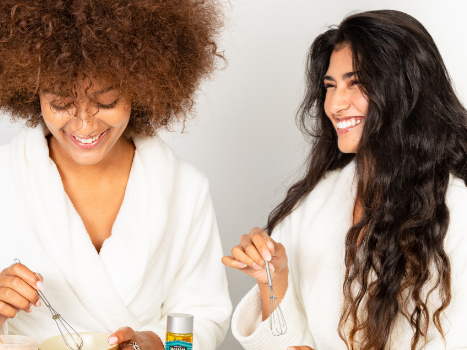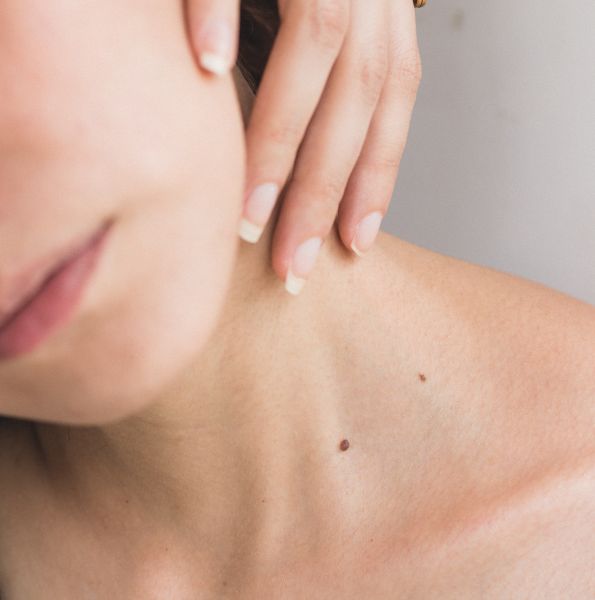
What are antioxidants good for?
Our skin can be subject to many daily aggressions: Dryness, ageing, imperfections, etc...
One of the damaging effects on our organism is 'oxidative stress'
Oxidative stress is the oxidation of the body's various cells. It is caused by molecules called 'free radicals'.
Antioxidants are molecules that protect our body's cells against "free radicals". These molecules are found naturally in certain foods we consume on a regular basis. Our bodies themselves produce free radicals.
What are "free radicals"?

Free radicals are oxidizing agents naturally produced by our bodies. They are atoms or molecules with a single unpaired electron in their outer layer. It is the accumulation of these free radicals that causes "oxidative stress", promoting the ageing of organs and skin. Unfortunately, this production is increased by external factors such as pollution, smoking and the sun's UV rays. An excess of free radicals can lead to premature cell aging and the development of certain diseases.
How do you fight free radicals?
Antioxidants are the best weapon against free radicals. Their main role is to fill in the outer layer of free radicals to neutralize their undesirable effects. There are several types of antioxidants:
Carotenoids
Carotenoids are natural pigments that are easily assimilated by the body. They are present in all red, yellow and orange plant foods. Dark leafy vegetables and seaweed also contain them.
Vitamin C
Well-known vitamin C is found in citrus fruits, red berries, vegetables and exotic fruits.
Vitamin E
Vegetable oils, shellfish and oilseeds are very rich in vitamin E. This is a fat-soluble vitamin. As such, it is well-stored by the body.
Polyphenols and flavonoids
Flavonoids belong to the large family of polyphenols. The foods that contain the most flavonoids are red fruit, citrus fruit, green tea, apples, etc.
Trace elements: zinc, copper, selenium
Zinc, copper and selenium have exceptional oxidizing properties. Seafood and offal, wholegrain cereals and cheeses are rich in zinc. Copper is found in liver, oysters, dark chocolate, etc. Sources of selenium in the diet include fish, liver, meat, eggs, oilseeds and oysters.
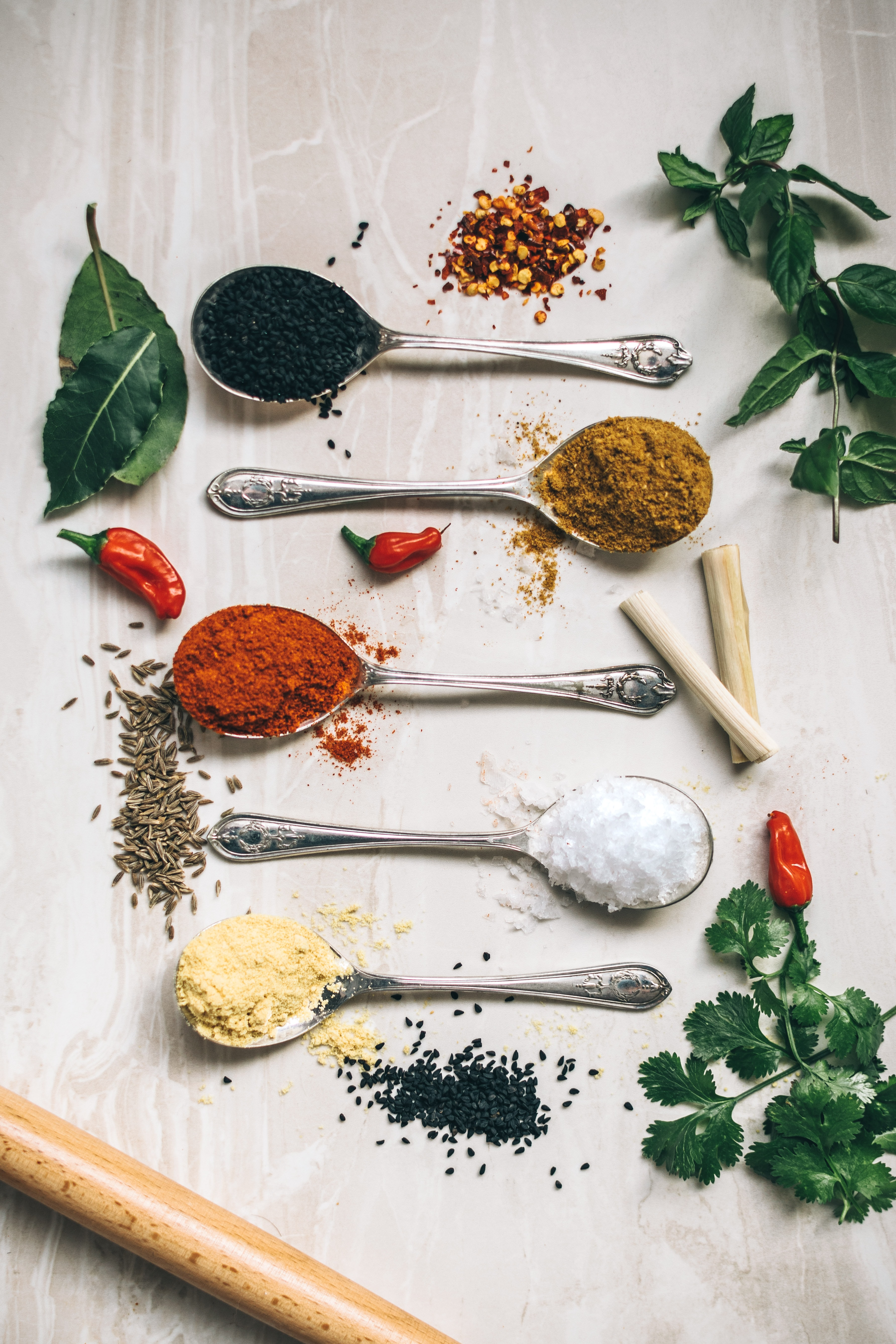
Routine for fighting free radicals
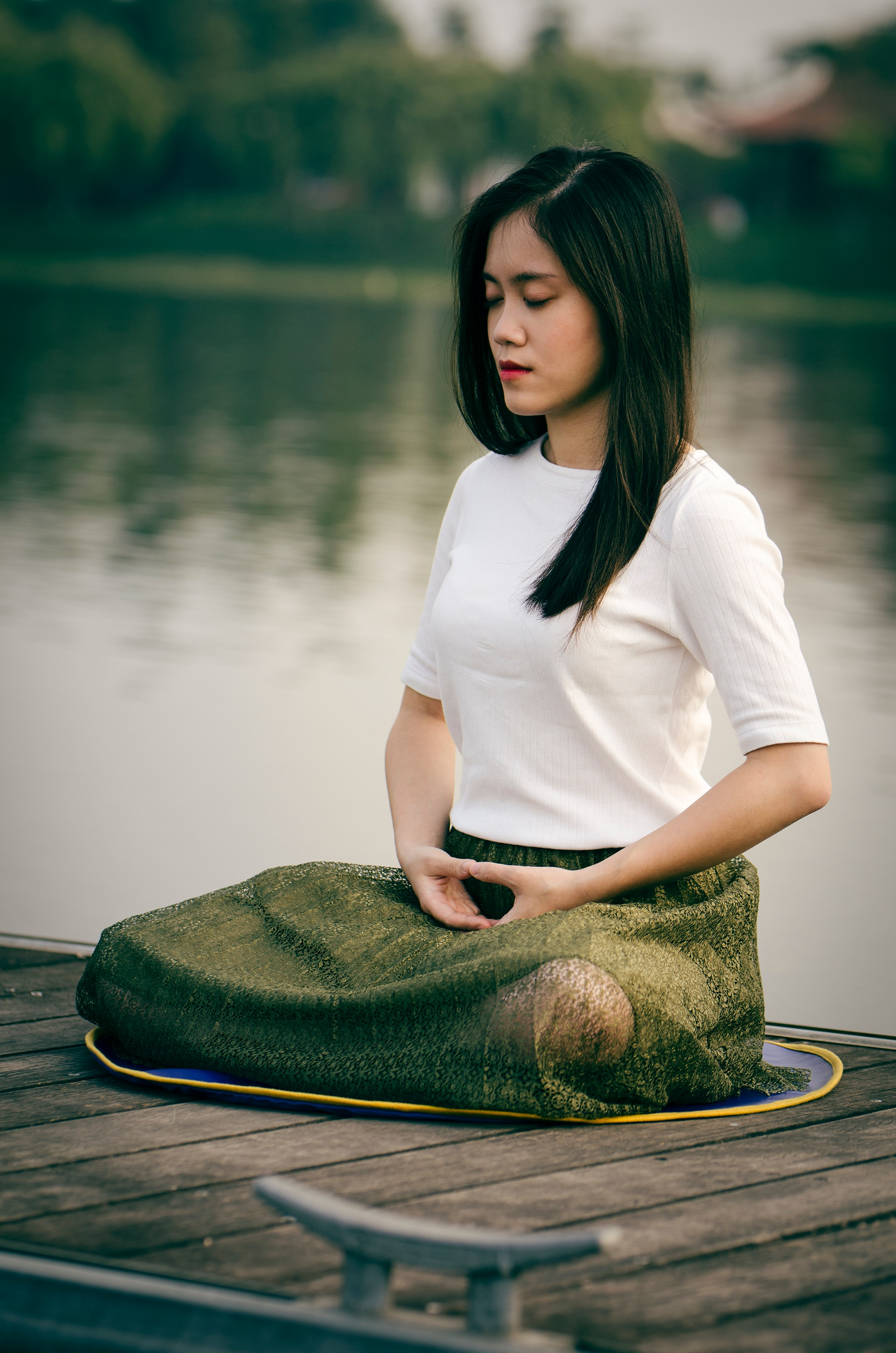
It is also possible to put in place a regular and effective routine to limit the production of free radicals.
- Reduce or eliminate tobacco and alcohol consumption
- Avoid excess calories
- Get a good night's sleep
- Always use sun protection and avoid excessive sun exposure
- Avoid stress in your personal and professional life
- Regular physical activity
- Choose a cosmetic routine enriched with or containing antioxidant active ingredients for more targeted action.
Fortunately for us, antioxidants are found naturally in some of the foods we consume every day.
- Dried hibiscus: The hibiscus flower is best known as an infusion for its refreshing, antioxidant and draining properties.
- Hibiscus powder: This 100% natural powder, produced from the flower's petals, is rich in mucilage (moisturizing and softening sugars) and antioxidants, which give it its innumerable properties.
- Baobab powder: Baobab powder helps to care for skin and hair naturally. This superfood restores energy, soothes skin and softens hair.
- Matcha tea powder: Matcha tea powder is recognized for its antioxidant benefits in anti-aging skin care products and creams. Its natural caffeine content makes it an indispensable ally in slimming and firming treatments.
- Urucum powder: Incorporate this powder into your face masks for a brighter complexion and hydrated skin. Rich in vitamin E and antioxidant, it protects the skin.
- Ashwagandha capsule: An Ayurvedic secret , Ashwagandha or Indian Ginseng is a so-called "adaptogen" plant. This type of plant is said to enhance the body's natural ability to resist stress. Ashwagandha also helps combat sleep disorders and is rich in antioxidants.
- Turmeric powder: A hair dye and an excellent anti-ageing treatment thanks to its anti-oxidant content, turmeric powder will also spice up your dishes.
- Spirulina capsules: Considered a "superfood", spirulina boosts vitality, tone and energy. Thanks to its high iron and B vitamins content, spirulina helps reduce muscle pain and cramps.
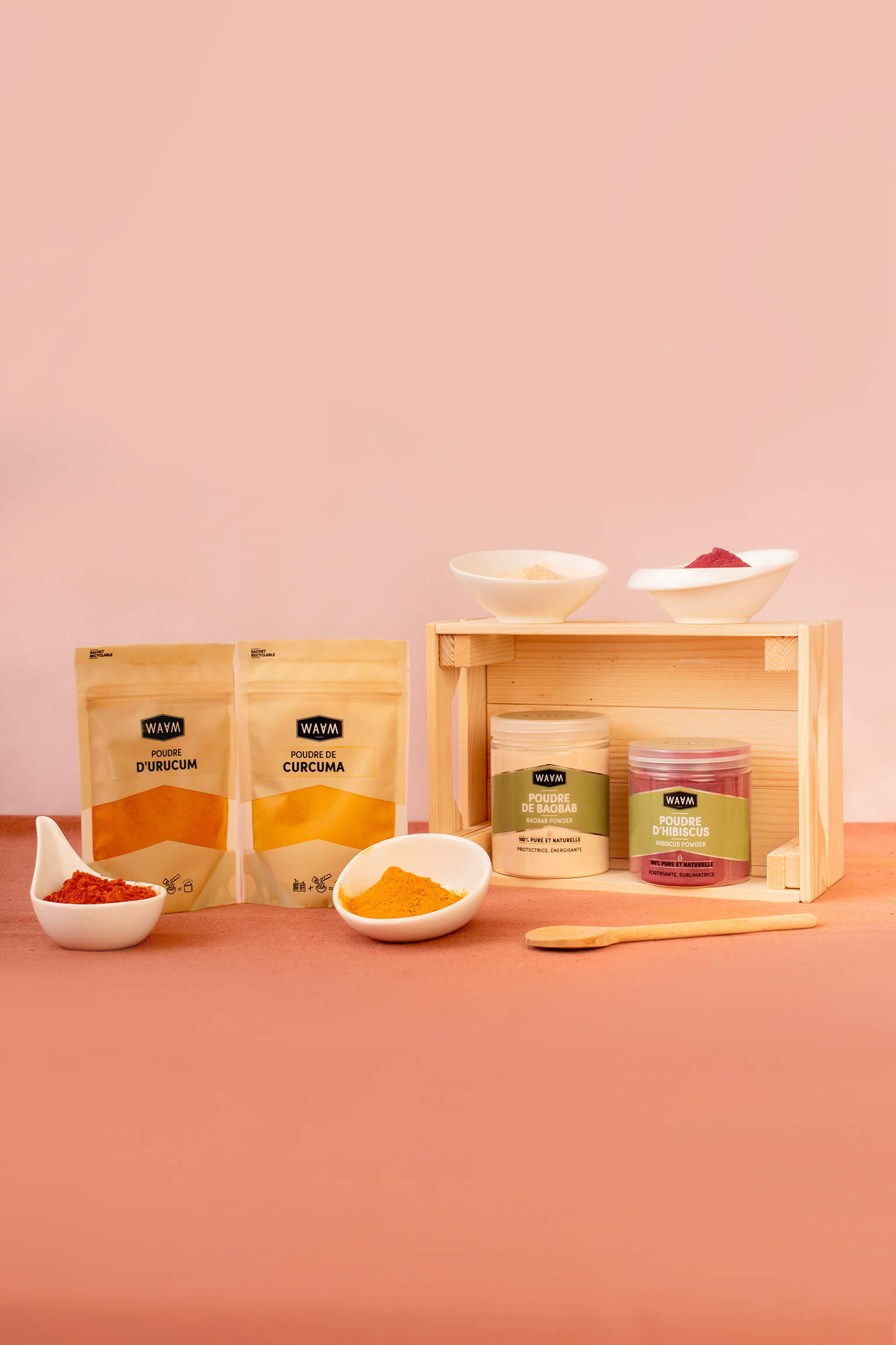
Some cosmetics for external use
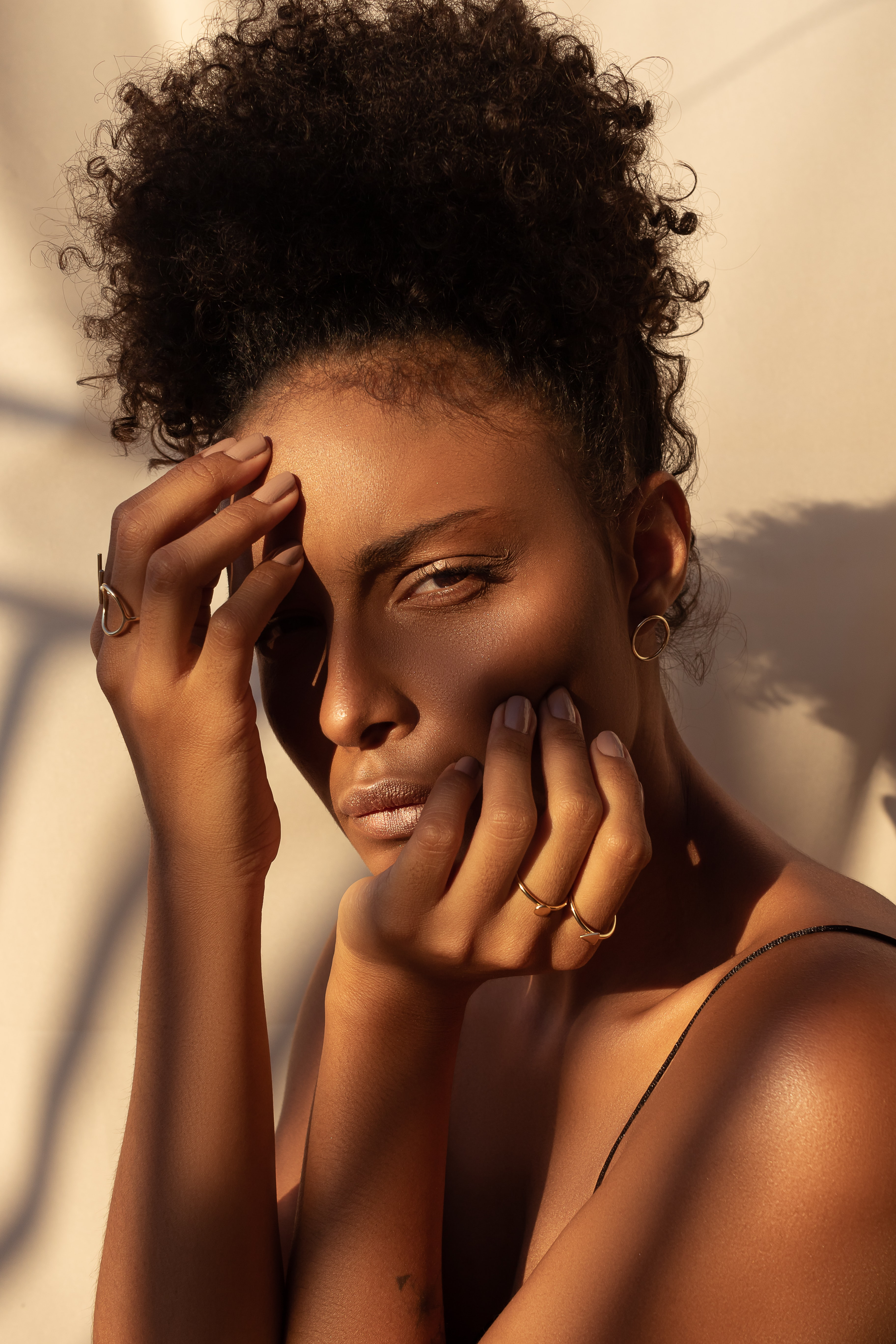
- Green Coffee Oil : Rich in antioxidants and fatty acids,green coffee oil both protects and firms the skin. It is ideal for reducing puffiness under the eyes, and also has nourishing properties for dry, damaged hair.
- Lemon powder: Lemon powder is perfect for exfoliating the skin. Rich in antioxidants, it adds shine and radiance to skin and hair.
- Rose Hip Oil: A healing and soothing vegetable oil for external use, to bring a healthy glow and for its anti-aging action on the skin.
- Vinegars: For use as a rinse or facial treatment, natural vinegars are ideal for beautifying and detangling hair, as well as for solving skin problems.
- Vitamin E active ingredient : Vitamin E helps preserve your balms and butters for longer. Its anti-aging and anti-oxidant properties also make it ideal for mature skin.
- Sesame oil: Sesame oil regenerates the skin, making it suppler and smoother. It penetrates quickly without leaving a greasy feel, making it ideal for massages.
- Buriti oil: For a luminous, tanned complexion and nourished skin, Buriti works wonders. As a bronzing oil or hair care oil, it restores radiance to skin and hair.
- Argan oil: Argan oil softens, nourishes and softens skin and hair. Repairing and regenerating, it is also a genuine anti-aging treatment
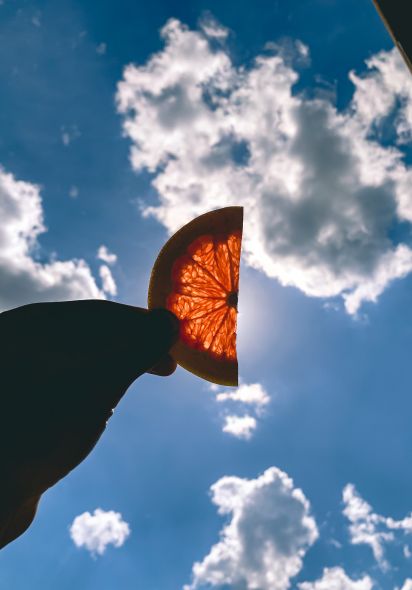
.jpg)
.jpg)





